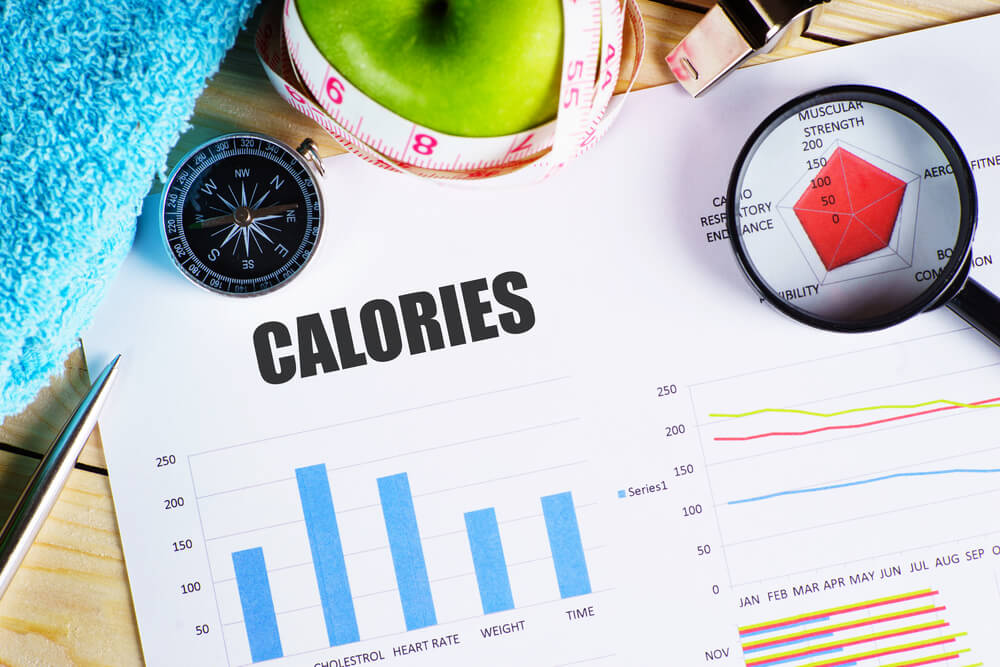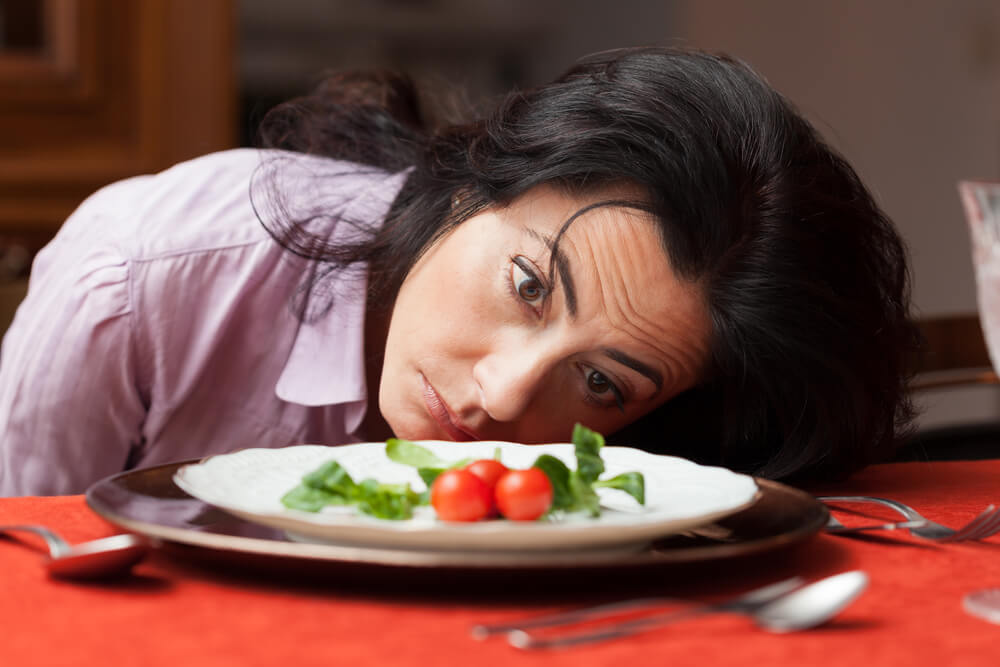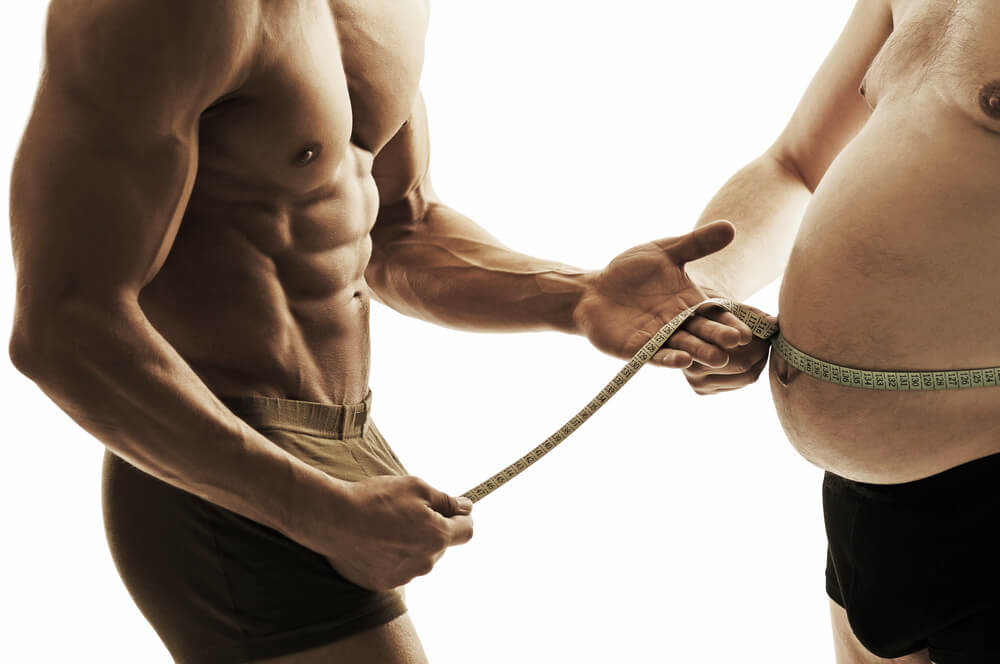Chances are, if you’ve ever tried to diet before, you know the sting of looking on the back of your favorite food’s package, only to cringe at the shockingly high amount of calories found inside.
Oh why must those cookies have 300 calories a pop?
Why?
So, in order to avoid some food distractions, you cut out all the distractions and decide to go with a very low-calorie diet.
After all, wedding season (or bikini season, or showing off shirtless mirror selfie season) is coming up, and you want to drop those extra pounds to really look toned and ripped. Everyone always asks how many calories should I eat to lose weight?
If you cut out as many calories as possible, you should quickly drop the weight, right?
Well, it is possible, and you will drop weight, but there’s a good chance it isn’t an effective way to diet.
Want to learn more about a very low-calorie diet?
We’ve got the insights for you.

What Are Calories?
There is a way to measure every kind of energy and production source.
With a light bulb, you measure the brightness in watts. With cars, there is horsepower (for whatever reason yes, we’re still comparing an automobile to a means of transportation that hasn’t been in regular use for over 100 years) and so on. Whatever it is, there is a way to measure energy. The same is true with the human body (and animal bodies, in general). A calorie is a unit of energy.
Everything you do, from blinking eyelids and breathing while sleeping to lifting weights and jogging after the bus you missed, takes energy.
Varying amounts of energy can be extracted from different sources. For example, one gram of carbohydrates contains four calories. The same is true for protein. Not surprisingly, one gram of fat contains nine calories (Medical News Today, 2016).
What is Going On With Food Labels?
Alright, so before we dive into the idea of a low-calorie diet, let’s talk about these food labels.
If you pick up a product made in the U.S. or made specifically for consumption within the United States, the label is rather straight forward. However, what happens if you’re traveling, or you grab a UK import and it is listed in “kilocalories” or “joules.” This will most certainly help with staying with your diet when eating out as well.
How in the world are you suppose to figure out what is in the food?
Let’s straighten that out.
First, a kilocalorie is, technically, equal to 1,000 calories. However, most packages just use the “Kcal” text but use the same calorie information you’d find in the states. The kilocalorie listing might only be used as the 1,000 calories = 1 kilocalorie if talking about the entire package.
As for the joule, that is a unit of energy measurement you might be familiar with from high school chemistry. It is commonly used throughout the EU, Australia and New Zealand, so you may find it listed on a handful of food labels. 1 calorie equals about 4.18 joules.
So keep this in mind if you’re reading an Australian food package.
You might need to do a bit of math in order to find out exactly the number of calories you’ll find in the food.
Drop Pounds By Burning Calories
When your body does anything, it burns calories. Should you consume more calories than your body burns, the calories are stored in the form of fat.
But what’s the deal with consuming fat?
Doesn’t that just turn into more fat cells in your body?
No, not at all. That’s not how the body works. Yes, you are more likely to gain weight if you consume fat. This, however, is simply because a gram of fat has nine calories of energy while a gram of protein has four. So, if you consume something with 20 grams of protein, you’re eating eat least 80 calories.
However, if you eat something with 20 grams of fat, you’re eating at least 180 calories.
This is why you may gain weight when eating food with more fat.
You are born with the same amount of fat cells you have today. Calories do not magically develop into brand new cells, only to be absorbed into the body. Cell creation takes a considerable amount of energy to produce (which is why weight training and repairing damaged muscle tissue continues to burn calories even after your workout). If your body were to create new fat cells from calories you’d never become fat. Instead, the fat cells absorb the remaining calories not used by the body.
Think of it as a water well.
The wells collect water that isn’t used but provides water for when it is needed. Your fat cells are like water wells. Collecting energy cells until these cells are needed.
In order to reduce the amount of energy storage in fat cells, you need to expel more energy than you take in.
So, naturally, you need to burn more calories.
Of course, some people burn more calories than others thanks to an increased metabolic rate. Metabolic rates have been covered in other articles (and the idea in itself is an article all its on with regards to how to boost the rate and what slows it down).
Beyond all of this though, no matter what your metabolic rate is, to drop the pounds you need to burn off the calories (Weight Loss Resources, 2017).
What is a Very Low Calorie Diet?
When you walk past the newsstand to make a grocery purchase, you probably have seen all sorts of Photoshopped actresses and models, proclaiming how they lost weight thanks to super low-calorie diets.
They make it sound so easy.
Of course, when you have nothing to do all day but bring in a personal trainer, a nutritionist and gobs of money to keep yourself side tracked from not having any energy and eating cardboard all day, yes, it does become easier.
But beyond the fact that life isn’t fair and these people have access to resources you’ll probably never have, what is a low-calorie diet?
A very low-calorie diet is exactly what it sounds like. You drastically cut down on your calorie intake. These diets may range anywhere from 800 to 1,500 calories (the recommended is in the United States about 2,700 calories for men and 2,200 calories for women, although in the UK these numbers drop to 2,500 and 2,000 calorie diet, respectively).
To drop a single pound of body fat, you need to burn away 3,500 calories more than you intake (this isn’t an exact science, but a pound of fat is measured out to 3,500 calories) (Very Well, 2017).
With a very low-calorie diet, you may be able to drop anywhere from three to five pounds per week. This means a total of 44 pounds over 12 weeks (potentially).
That sounds pretty good, right?
Yes, it likely does, but there are problems with it.
Big problems.
How Effective Are Very Low Calorie Diets
If you are considered obese and significantly overweight, your doctor may temporarily put you on a very low-calorie diet.
This is because you need to drop a good amount of weight in order to improve your overall health. The thing about it though is a very low-calorie diet is not sustainable. You simply are not receiving not only the amount of caloric energy you need but the daily nutrients you need. This can, over time, put your entire body at risk.
With the ability to drop weight fast, a very low-calorie diet is effective, in the right situation and when done by those recommended to do so under the supervision of a primary physician.
If you’re looking for a diet you can maintain for an extended period of time, this is not it and it will have negative side effects. So while a very low-calorie diet is effective to an extent, it isn’t something you can maintain for the rest of your life.
A quality weight loss diet is one you can follow and make a regular part of life without feeling like you’re suffering (WebMD, 2017).
Side Effects of a Very Low-Calorie Diet
Alright, so you can drop weight with this kind of diet. After all, you’re not bringing in much in way of calories, so naturally, you’d drop the pounds.
But outside of weight, what kind of side effects should you expect?
Well, let’s first focus on the weight aspect.
You will drop pounds, yes. But it will not all be fat. In fact, eventually, your body will start to process muscle instead of fat. Fat storage is quick and easy to access.
However, if your body realizes it is not receiving the necessary energy, it will begin to hold onto the fat and instead turn to the protein within your body (muscle) and turn this into energy. So while you will drop weight, some of this will be a loss of muscle mass. Due to this, it really is not possible to go on a very low-calorie diet and maintain your current muscle statue (don’t even think about attempting to increase muscle mass with this kind of a diet as it isn’t going to happen).
So let’s say muscle size isn’t that important to you. Maybe you just want to be thin and that’s it.
Well, you need to understand that as your muscle mass reduces, you’ll burn fewer calories throughout the day as you won’t have the muscles churning away, burning through calories. This also will slow down your metabolic rate. So, by going on a reduced calorie diet, you’re not burning as many calories as you might have on a 2,000 calorie diet where your body is receiving the necessary proteins, vitamins and minerals to maintain a healthy body.
Beyond all of the fat burning and how your body processes energy, you’re eventually going to feel fatigued due to the lack of energy.
You may also experience everything from constipation to diarrhea. It really depends on what you’re eating.
Since it is a limited diet you’re likely not going to receive enough fiber, which can lead to constipation, or you’ll eat mostly veggies, which means you won’t have the protein to solidify your bowel movements, and in turn this causes diarrhea (basically you’re in a lose-lose situation here with regards to your bathroom habits).
Eventually, your body may become accustomed to the lower calorie diet, so this won’t be as big of an issue, eventually, although nothing is promised with a low-calorie diet.
You’re also going to experience other problems. Gallstones are a common side effect of a very low-calorie diet. This is because your body has to break down fat faster for energy which can be difficult for it to keep up with. The liver in your body will start to secrete more cholesterol, which is bad if you have a cholesterol problem. This may combine with the bile in your digestive tract, causing the development of gallstones.
You may see your hair begin to thin out and you’ll develop brittle nails due to the lack of nutrients and protein going towards this area of your body.
Who Should and Who Shouldn’t Consider a Very Low-Calorie Diet
Basically, ask your doctor. If your doctor gives you the all clear, then you can start on a very low-calorie diet, but it usually is only recommended for a few weeks up to a few months.
This is almost only the case if you are considered obese. If you are not significantly overweight, are pregnant, breastfeeding, are a teenager, over the age of 50 or on medication, you should not be on this diet. Think of it as a prescription diet.
Unless you’re told you need to be on it, chances are there are far better ways to drop the weight in a healthy manner.
Conclusion
Very low-calorie diets provide you with little in way of nutrients. Yes, you may drop weight, but it will not all be fat, you’ll feel tired all the time and you’ll likely see your hair thin out.
While it is ultimately up to you with how you diet, we would not recommend this kind of a diet unless a doctor tells you to consider it.
-Terry Asher
Terry Asher
Latest posts by Terry Asher (see all)
- Better Family – Product Review Liquid Daily 2 oz - Dec 16, 2024
- Post-Workout Recovery: The Key to Optimal Performance - Nov 25, 2024
- Pre-Workout Supplements – Everything You Need To Know - Nov 18, 2024













Terry, this is a great article! You made it very easy to understand whats going on in your body! Thanks!
Thank you, Shannan! Glad you enjoyed it… Thanks for the comment as well 🙂
-Terry Asher
Well for a maintained body, proper workout, the right nutrition is really very necessary. Either it’s the pre workout or post workout nutrition, proper calorie consumption is really very necessary.
The best way to consume right calories is to make a proper diet plan and follow it.
It’s quite hard to achieve a maintained physique without proper diet, but not impossible. Make your daily diet routine and specify workouts for every body part. Work accordingly and I am sure this will definitely bring a massive difference in the body state and its fitness.
That’s a very informative article Terry , I will pass it on some of my friends who are overweight.I mean…Your article is very simple to understand. Thanks a lot man! 🙂
Thank you, John, for stopping by!
-Terry Asher
Thank you for sharing this useful information, I will regularly follow your blog
[…] to maximize weight loss. Most soup diets, cabbage or no cabbage, are fat-free. Each ingredient is a low-calorie one, the diet itself is approached in cycles—so as to give the body time to […]
[…] to maximize weight loss. Most soup diets, cabbage or no cabbage, are fat-free. Each ingredient is a low-calorie one, the diet itself is approached in cycles—so as to give the body time to […]
[…] to maximize weight loss. Most soup diets, cabbage or no cabbage, are fat-free. Each ingredient is a low-calorie one, the diet itself is approached in cycles—so as to give the body time to […]
[…] to maximize weight loss. Most soup diets, cabbage or no cabbage, are fat-free. Each ingredient is a low-calorie one, the diet itself is approached in cycles—so as to give the body time to […]
[…] to maximize weight loss. Most soup diets, cabbage or no cabbage, are fat-free. Each ingredient is a low-calorie one, the diet itself is approached in cycles—so as to give the body time to […]
[…] to maximize weight loss. Most soup diets, cabbage or no cabbage, are fat-free. Each ingredient is a low-calorie one, the diet itself is approached in cycles—so as to give the body time to […]
[…] Best Very Low Calorie Diet from A Very Low Calorie Diet Is It Effective. Source Image: gymjunkies.com. Visit this site for details: gymjunkies.com […]